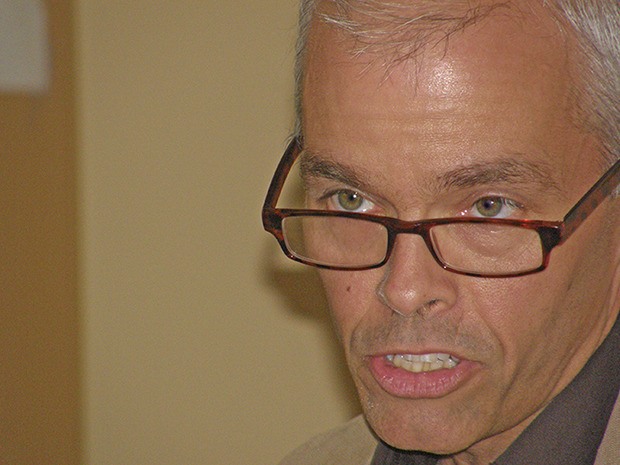Deeply entrenched leadership, said Auburn City Councilman John Partridge, relies on itself, resists change, supports and defends its past decisions — and in time tends to forget the very people it is there to serve.
Just the sort of power structure, the Auburn mayoral candidate told supporters at a recent rally at the William Warren Building at Veterans Memorial Park, that he has smacked up against time and again in his four years on the council.
But should Auburn voters elect him mayor this November, Partridge said, he would be a leader of a different stripe: a mayor bringing to the job an outsider’s fresh perspective coupled with an unusual willingness to listen to what residents, councilmembers and City staff have to say.
His vision as mayor, he said, would be to see Auburn continue as a destination, not a pass-through. A place to raise and support a family and build a business.
“Simply put, I want to employ a philosophy that my father instilled in me in the mountains surrounding our state: ‘John,’ he said, ‘always leave a place better than you found it.’ My hope is that my children would consider Auburn a place that they would choose to raise their families, as I did mine, as my father did before me, and his father did before him, right here in Auburn.”
As mayor, Partridge said, his experience and “innovative ideas” would “better serve” the people’s interests, better, presumably, than his opponents in the Aug. 6 primary, Councilmember Nancy Backus and Iraq war veteran Scot Pondelick, neither of whom he named. The two top vote-getters move on to the Nov. 5 general election.
He said he plans to build his leadership on three priorities: the safety of the community; securing funding for roads and walkways to keep people connected and business flowing; and to ensure that “the people’s voice” is heard.
In his term, Partridge said, he has sat on three of the four principal city subcommittees: Planning and Community Development: Municipal Services; and the Finance Committee, which he chairs. He has participated in two budgetary cycles. And, he said, he has been keen to take advantage of regional and national opportunities to extend his connections and knowledge of legislatives issues touching on public safety.
His leadership, he said, led to the formation of the Auburn Valley Humane Society, the City’s new animal shelter on A Street Southeast and Auburn’s procurement of its own animal control officer, after decades of contracting animal control services out to King County.
“In 2010, when the City faced reduced service and rising costs for animal control services, I realized that there was an opportunity to do what a council member is supposed to do — seeing the need, I created a vision that ultimately formed the AVHS. After the formation of the AVHS, it took just three years for Auburn to have its own animal shelter, its own animal control officer, and a place for people to gather and to serve,” Partridge said.
“I believe we need to maximize our strengths by enabling these public-private partnerships and minimizing our debt and taxes by maximizing priorities to seek efficiencies. I believe that government needs to be big on the citizens and small on itself. It needs to be about business, but not in competition with business.”


